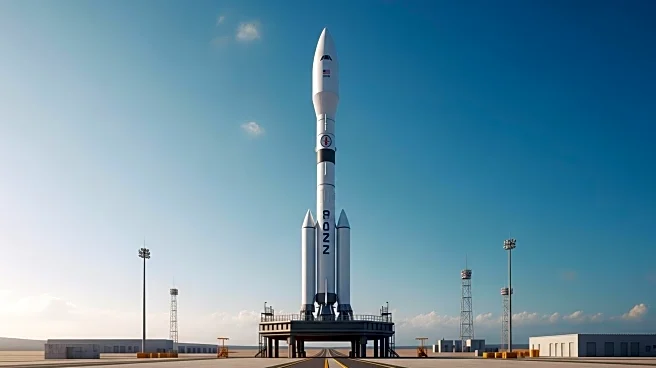What is the story about?
What's Happening?
Texas is positioning itself as a central hub for space exploration by leveraging its existing space infrastructure and business-friendly environment. The state is investing in public and private endeavors, including the construction of a $200 million Space Institute adjacent to the Johnson Space Center. Texas is also providing grants, tax incentives, and zoning relief to private companies like SpaceX. The state aims to enhance its galactic workforce by bolstering STEM education pipelines and aligning state-level incentives with national regulatory frameworks.
Why It's Important?
Texas's strategic investments in the space industry could drive significant economic growth and innovation. By creating a conducive environment for space exploration, the state could attract more companies and talent, contributing to the growth of the space ecosystem, projected to reach $1.8 trillion by 2035. The focus on STEM education and public-private partnerships could strengthen Texas's position as a leader in space exploration, fostering job creation and technological advancements.
What's Next?
Texas must continue to develop advanced technology and infrastructure, such as clean rooms and launch pads, to support space exploration. The state should also ensure environmental stewardship by building partnerships that balance economic benefits with sustainability. Legislative efforts like the Texas Space Flight Liability Act could further accelerate development, while local governments may need to implement stringent permitting rules to protect natural resources.
















